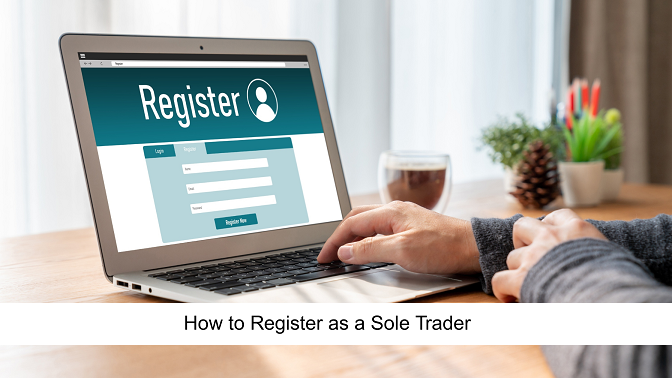
Have you ever thought about how easy it is to start your own business and become your own boss as a sole trader?
Registering as a sole trader, you simply need to inform HMRC that you’re self-employed using your Government Gateway account. Once registered, you’ll receive a Unique Taxpayer Reference (UTR) number and must file a Self Assessment tax return each year.
Becoming a sole trader is ideal for freelancers, contractors, and small business owners who want full control of their business with minimal paperwork and simple tax responsibilities.
A sole trader is a person who owns and runs their own business individually. They are self-employed and have full control over all the decisions and profits of the business.
Unlike companies, a sole trader and the business are considered the same legal entity, which means the owner is personally responsible for any debts. This simple business structure is easy to set up and popular with freelancers, small business owners, and tradespeople. While a sole trader can employ others, they themselves are the sole owner of the business.
You should register as a sole trader if you earn more than £1,000 from your business in a tax year. Registering means you can pay tax through the Self Assessment system and make National Insurance contributions to qualify for benefits like the State Pension.
Registering also helps prove you're a Sole Trader, which can be important for claiming Tax-Free Childcare or applying for loans.
Here are the steps to register as a sole trader in the UK:
If your business income is more than £1,000 a year, you must register. If you’re unsure, you can start trading and register before you hit this limit. You must register by 5 October, following the end of the tax year when you started your business, to avoid penalties.
Gather the following personal details before you begin the registration process:
You can register online through the Government Gateway website by creating an account or logging in if you already have one. Alternatively, you can register by post using a paper form if online registration isn’t suitable for you.
You can trade under your own name or pick a business name. If you choose a business name:
Remember to include your business name and your own name on all official documents, like invoices and letters.
After registering, HMRC will send you a 10-digit Unique Taxpayer Reference number. This is an important number you’ll use when filing your tax returns and communicating with HMRC.
You will also receive an activation code in a separate letter to set up your online HMRC account. This account allows you to manage your tax affairs, including filing your Self Assessment tax returns.
From the start, keep clear records of your income and business expenses. This will help when completing your Self Assessment tax return each year.
Once you’ve registered your business, there are a few key responsibilities to keep in mind. You must file a Self Assessment tax return every year, detailing all your income and expenses.
In 2025, as a sole trader in the UK, your tax depends on your earnings. You will pay income tax based on your profits:
|
Income Range (£) |
Tax Rate |
Description |
|
Up to 12,570 |
0% |
Personal Allowance (tax-free) |
|
12,571 to 50,270 |
20% |
Basic rate income tax |
|
50,271 to 125,140 |
40% |
Higher rate income tax |
|
Above 125,140 |
45% |
Additional rate income tax |
Additionally, you will pay National Insurance Contributions:
|
Profits for NICs (£) |
NIC Rate |
Description |
|
12,570 to 50,270 |
6% |
Class 4 National Insurance |
|
Above 50,270 |
2% |
Class 4 National Insurance |
Registering as a sole trader is a simple process that gives you flexibility and control. By knowing how to register as a sole trader and following the right steps, you can set up your business legally and with confidence. Remember, staying organised and meeting HMRC deadlines is vital to keep your business running smoothly.
As a sole trader ready to establish your business, PHS Associates can help you with all your accounting, tax, and business management needs. Setting up as a sole trader is the easiest way to start your business, and we will guide you every step of the way. For professional accounting help, contact us by phone at 0208 8611685 or email info@phs-uk.co.uk.